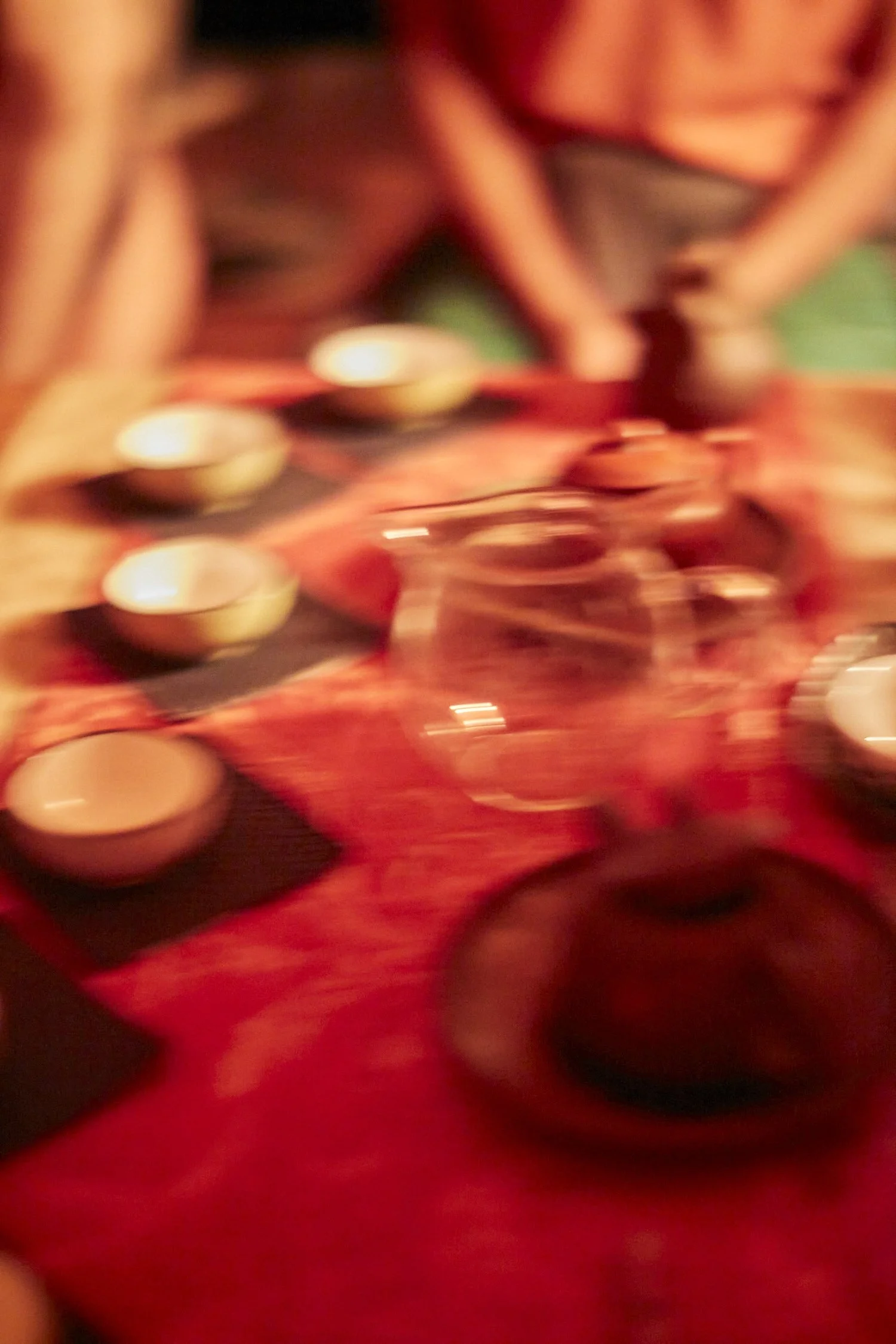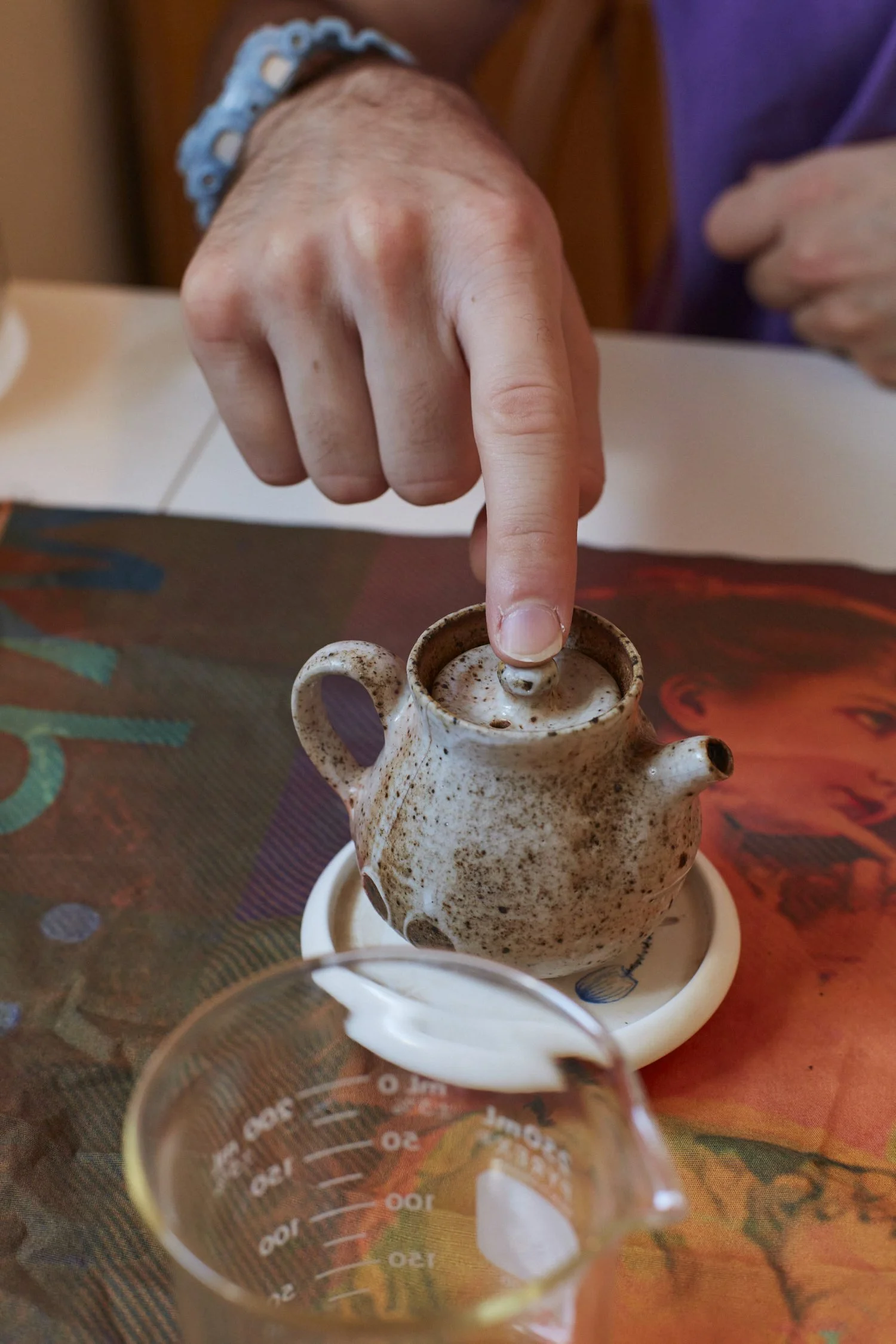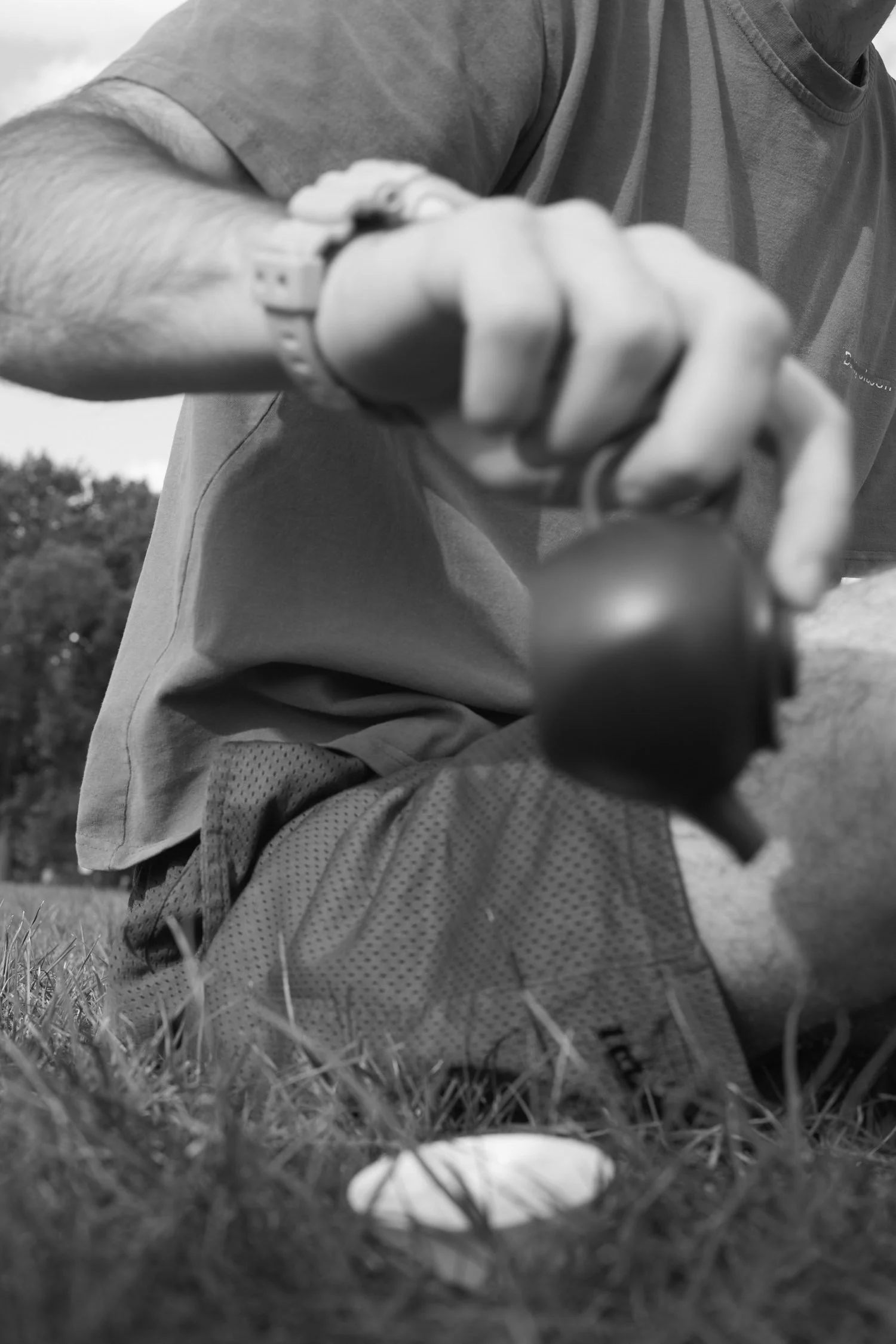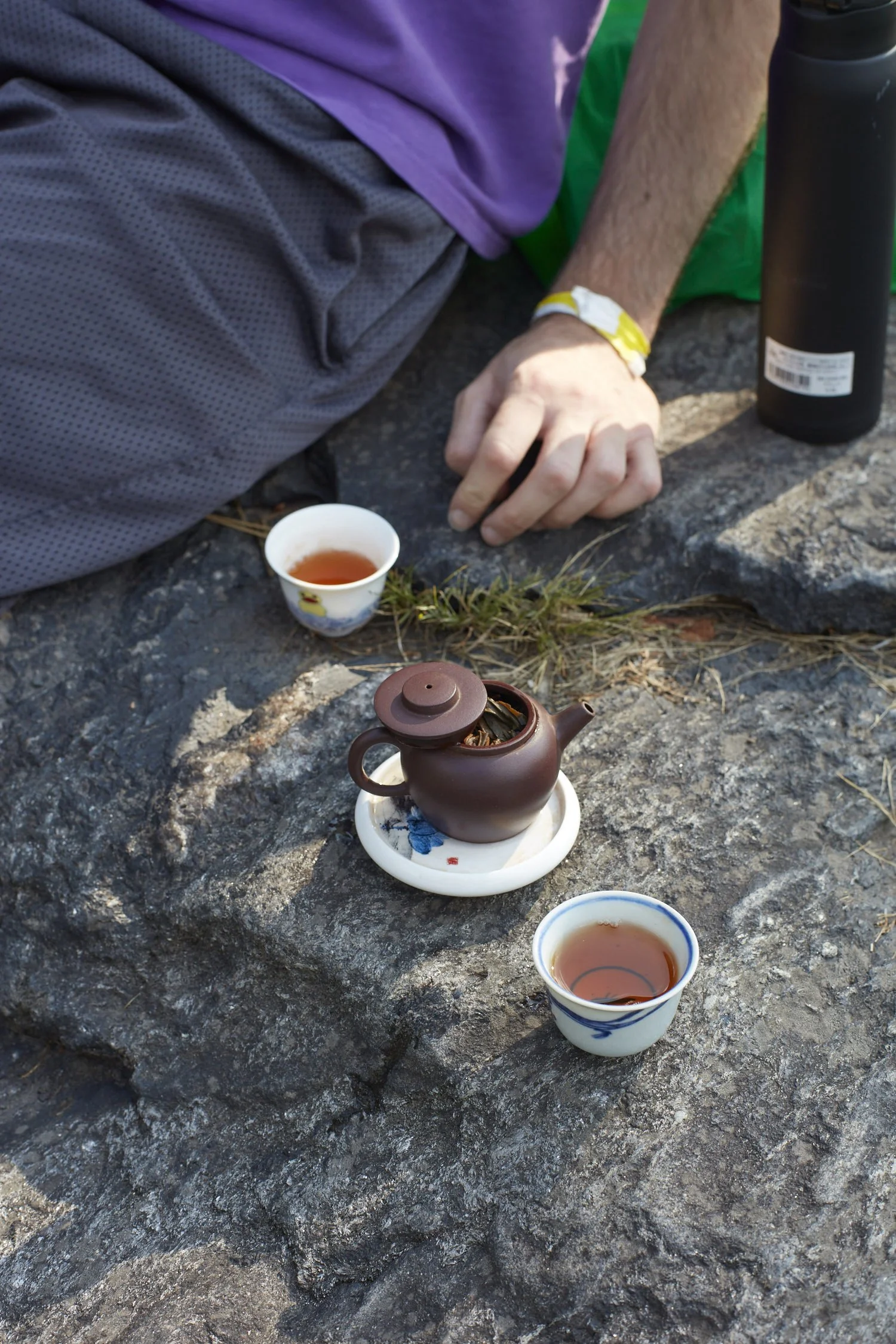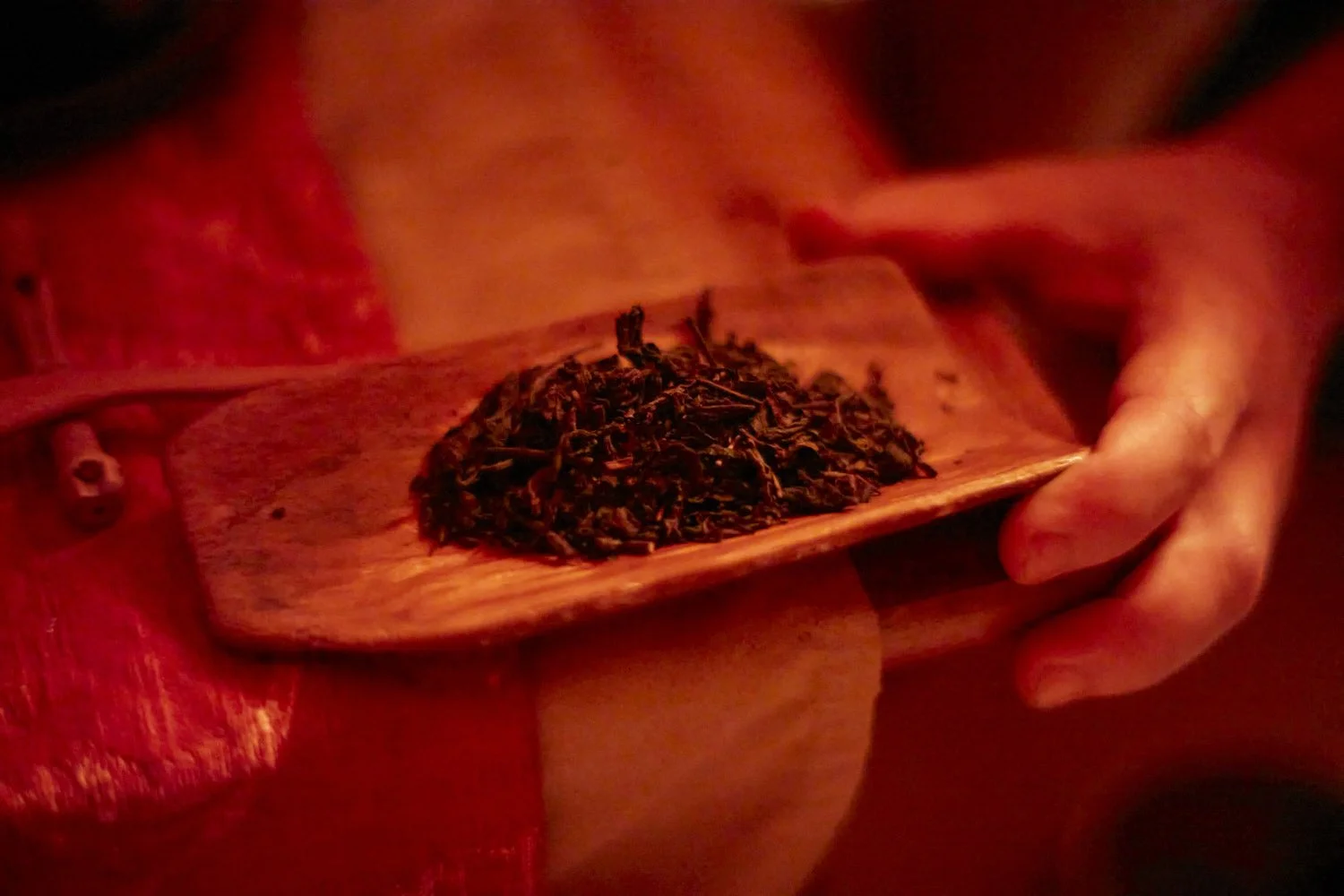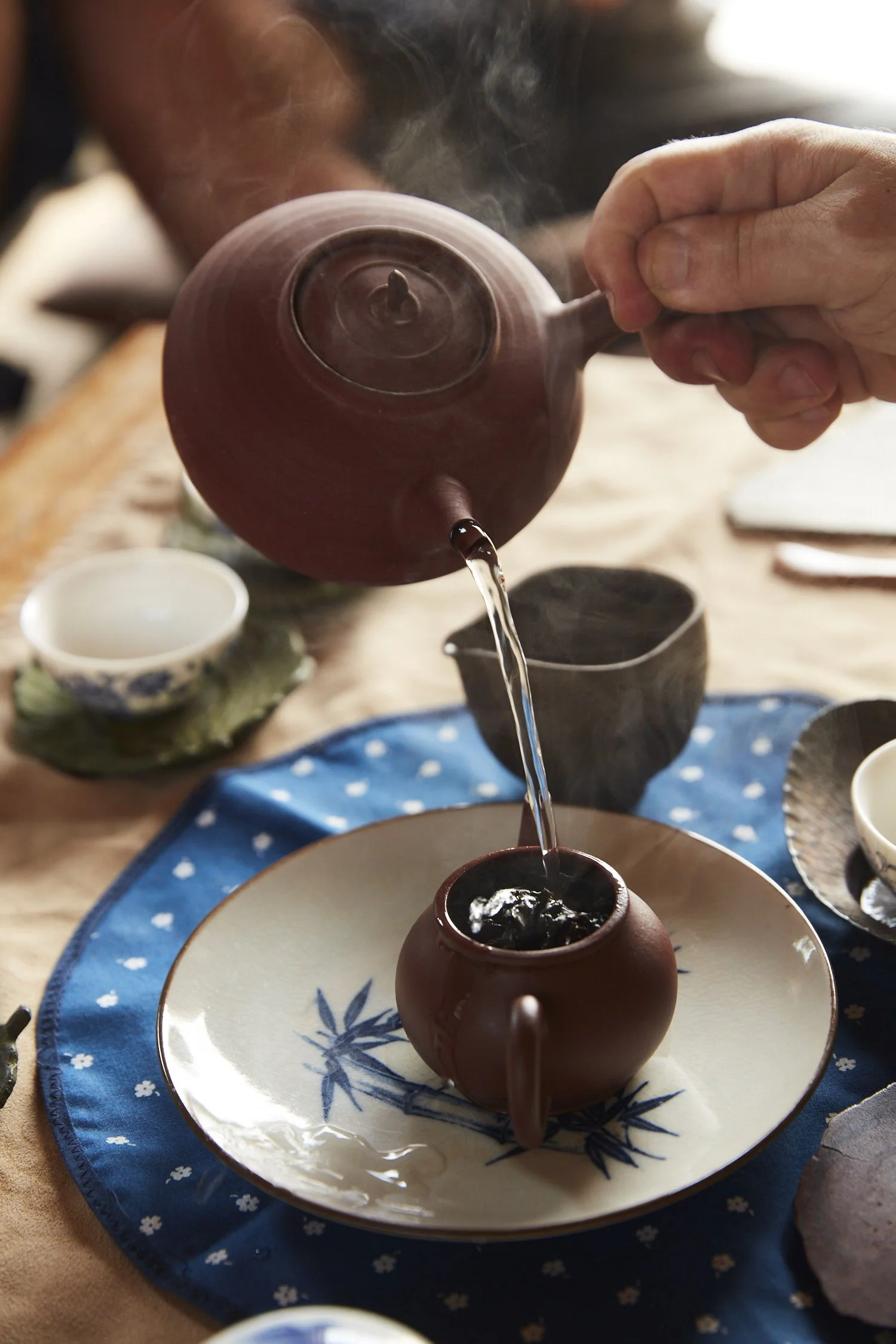Does Tea Go Bad?
Does tea go bad? That's a great question!
The simple answer is: No, tea doesn't technically go bad…
But just like most tea-related questions, it's a little more complex than that. So that's why I wrote this article. Not only will it answer that question, but it’ll also:
Clear up some common storage questions.
Ideas around tea aging.
And more.
Grab some tea and let's get brewing.
Does Tea Go Bad?
So this is kind of a tricky question… In theory, any food product can go bad.
But generally speaking, finished tea is shelf-stable. Meaning it's not likely to mold or go bad in any traditional sense of the word.
But that doesn't mean tea can't go stale or change in flavor.
The important thing to remember is: Certain kinds of tea are technically considered to taste better when they're fresh.
But why?
Well, this has a lot to do with the kind of tea and the intended flavor profile.
For example, green teas, are intended to capture the bright, floral, green flavors of spring.
And Green tea processing styles yield a tea that tastes best when fresh. As green tea gets older, it loses some of these fresh, bright, desired flavors.
Does that mean the tea has gone bad?
Not at all. It's drinkable and safe for consumption. It just tastes different than it originally did.
Some people might consider this tea going bad, but it's not unsafe to consume. Each category of tea is a bit different though –
Some tea is more susceptible to going stale or changing their flavor. What's even more confusing (and exciting) is that some teas can age.
This means they change as they get older, and often develop desired flavors in the process. We'll talk more about that shortly but bear with me.
Can Tea Expire?
Yes, tea can expire. But it's not likely it'll become undrinkable or unsafe to be drunk just because it's old. Tea is generally considered to be shelf-stable, so it doesn't expire the way other food products do. But only if stored properly.
You may see a BBD (Best Before Date) on mass-produced teas – This is useful for knowing when your tea was processed, but I wouldn't worry too much about it for higher-quality loose-leaf teas.
Plus, a BBD is only here to indicate when it’s best to consume it to get the most of its flavor. It is not a real expiry date and doesn’t have anything to do with safety.
Teas can oxidize – meaning they will start to lose their desired flavor. And will taste a little old or stale as they become exposed to air for long periods.
But as long as they're not stored in a wet or unhealthy environment, it's safe to consume even after a printed "BBD". In my opinion, the most important thing to focus on is proper tea storage. And we'll get to that in a bit.
How Long Do Teas Last?
Tea is pretty shelf-stable. Mass-produced teas usually have expiration dates anywhere between 1-6 years.
Again, that number is pretty arbitrary. Some will last a lot longer than that, while others lose their flavors much more quickly.
When you get into the world of higher-end loose-leaf teas, these dates matter less… Some teas even get a little better the older they get!
Intentionally Aging Tea
Can you age tea?
Plain and simple, the answer is yes. Some teas can age. Meaning they can positively change as they get older.
But again, some tea doesn’t necessarily taste as good with some age. While some are suited for long-term storage and aging, each of the 6 categories of tea tastes quite a bit different as they age. Some develop favorable traits, while others lose them.
Green and Yellow Tea Aging
Generally speaking, you probably want to drink your Green teas and Yellow teas kind of quickly. These teas oxidize (react with the air) quickly and tend to lose their intended, bright, and fresh flavors a bit more quickly than other types of tea.
Red Tea Aging
Red teas (which are often called Black teas in the West) can handle a little bit of age, but they tend to lose some of their floral, bright flavors with time.
Extra info: What we call "Black Tea" is actually Red Tea in the East, while Black Tea in China is a unique post-fermented tea known as "Dark Tea" in the West.
WuLong (Oolong) Tea Aging
Wulong (oolong teas) also change quite a bit as they age. They tend to taste a bit stale after a few years. But with that being said, many people love the way Wulong teas taste as they get older.
White Tea Aging
White teas get sweeter and deeper in flavor as they age. This is because the enzymes in the leaf continually allow slow chemical reactions to happen in the leaf, which results in different-tasting tea as it ages.
I've seen some White teas aged for 10 + years! And they taste very good - just different than before.
Puer Tea Aging
Pu Er tea (or specifically raw Pu Er) also has a reputation for developing desired traits as it gets older. Raw puer starts out tasting a lot like a strong Green tea:
Bright
Bitter
Sometimes floral or fruity
And quite tannic (drying)
The processing method for Pu Er allows the tea to change slowly as it ages. This part can get kind of geeky, but the enzymes in the tea leaf that facilitate chemical reactions that impact flavor stay active and change the flavor of the tea slowly over time.
In other kinds of tea, these enzymes are stopped completely during a process called Kill-green, which essentially freezes a tea's flavor in a specific place (think bright, fresh Green tea).
But because these enzymes stay active in Pu Er, the tea will change from that bright, bitter, fresh profile – to something much more earthy, sweeter, and more complex. So generally speaking, many tea drinkers like these teas as they age.
Proper Tea Storage Tips
Like I briefly mentioned earlier, storage is probably the most important part of determining how to keep your tea from going bad. Tea absorbs what's around it, so unwanted flavors from a kitchen, a wet storage area, or other flavored teas can all seep into loose-leaf teas that aren't stored properly.
Tea leaves are also sensitive to moisture, so that's another key part of storage to keep in mind. Tea's flavor changes as it oxidizes – So the more exposure it has to oxygen when it's not sealed properly means its flavor changes and it starts to taste old and a little stale.
Extra Info: Oxidation (also called fermentation sometimes) in tea isn’t necessarily a bad thing. In fact, tea producers have learned how to oxidize tea leaves to change their flavor and give them a particular taste. That’s how we can have so many different types of tea from the same plant. If you want to learn more about this oxidation process, you can take a look at our article What Is Oxidation In Tea? here.
4 Tips on How to Store Loose Leaf Tea
The best ways to store loose leaf tea include:
Keeping it in a sealed (airtight) bag or container
Away from sunlight
Away from moisture
And away from strong odors (so not in your kitchen!)
I keep a lot of my teas in the zippered bags they come in. Except for when it comes to my Pu Er teas, which I keep in a humidity-controlled environment (but that's a post for another day!).
So original packages like metal tins and resealable foil-lined bags are great. They are impervious to moisture, air, and smells.
Extra Info: Generally speaking, teas are very vulnerable to air and moisture. However, Pu Er tea is an exception because it ned both airflow and humidity to be properly stored.
Can You Store Tea in Glass Jars?
It's not the best practice to store your tea in glass jars. It sure does look cool, but the light and heat caused by the sun hitting the glass can damage your tea leaves.
So if you're in a store and they're selling loose tea in big glass jars, be careful – Who knows how long it’s been there! If you're storing tea like this at home, try to keep it out of the light or use an opaque glass jar instead.
Can You Store Tea in Plastic Containers?
In general, it’s best to avoid storing your tea in plastic bags and boxes because you want a container that is totally airtight. However, all plastics aren’t hermetic, meaning they don’t necessarily block odors and air efficiently. A metal container is more what you are looking for.
What To Do With Your Older Teas
If you have teas that taste a little old or stale when you brew them, try this:
Add a few tablespoons to 16 or some ounces of cold water and put it in the refrigerator overnight.
It will likely make a super tasty cold brew that will cover up some of the imperfections caused by aging. It's fun in the summer or anytime.
Pro Tip: Try this cold brew next to a normal hot brew and you'll learn a lot about a tea's flavor.
The Final Sip
Now that you have a better understanding of whether or not tea can go bad, how it can age, and how to store it, your tea-drinking experience can be a bit more relaxed.
Again, proper tea storage is probably going to keep you and your teas happier than worrying about how old they are. If you have any tea questions of your own, we'd love to hear from you! Leave a comment below, or tell us about your favorite tea.
MORE ON TEA

